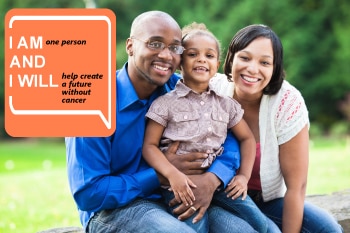World Cancer Day

Each person can help create a future without cancer.
You can help create a future without cancer, no matter where you live.
World Cancer Day may remind you of people you know who have been diagnosed with cancer. Some may even be members of your family, or you may have had cancer yourself. This may lead you to think that there’s no way to avoid getting cancer as you get older.
But the fact is, you can do simple things to lower your risk, even if cancer runs in your family or you have had cancer yourself. Some of them may surprise you!
- Protecting your skin from the sun lowers your risk of getting skin cancer, the most common cancer.
- Drinking less alcohol can lower your risk for liver, breast, colorectal (colon), mouth, and throat cancers.
- Keeping a healthy weight can make you less likely to get breast, colon, and at least 11 other kinds of cancer.
- Quitting smoking and staying away from tobacco smoke reduce your chance of getting cancer in many places throughout your body—not just your lungs.
Cancer does not have to be a part of getting older!
Parents Are the Key
As a parent, you can set the stage for your children to live long, cancer-free lives.
Getting your children vaccinated against human papillomavirus (HPV) is a major step. The HPV vaccine protects against cervical and several other kinds of cancer. The vaccine is recommended for boys and girls who are 11 to 12 years old, but can be given to children as young as 9 years old and to adults as old as age 26.
As your children grow into teens and young adults, you can encourage them to stay physically active and warn them about the dangers of tanning (indoors or outdoors), drinking too much alcohol, and using tobacco.
Catching Cancer Early
Screening tests can find cancer early, when it’s easiest to treat.
- Starting at age 50, both men and women should get checked for colorectal cancer.
- Women should start getting screened for cervical cancer at age 21. Most women should start getting mammograms when they’re 50 years old.
- If you smoke now or quit within the past 15 years and are 55 to 80 years old, talk to your doctor about getting screened for lung cancer.
Wellness After Cancer
If you’ve been diagnosed with cancer, you have a high risk of getting cancer again. It’s very important for you to take steps to lower your risk, like quitting smoking and staying active, and getting the follow-up care your doctor recommends.


































No hay comentarios:
Publicar un comentario